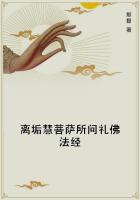It is not necessary to go here into all the details of the costs of circulation, such as packing, sorting, etc. The general law is that all costs of circulation, which arise only from changes in the forms of commodities do not add to their value . They are merely expenses incurred in the realisation of the value or in its conversion from one form into another.
The capital spent to meet those costs (including the labour done under its control) belongs among the faux frais of capitalist production.
They must be replaced from the surplus-product and constitute, as far as the entire capitalist class is concerned, a deduction from the surplus-value or surplus-product, just as the time a labourer needs for the purchase of his means of subsistence is lost time. But the costs of transportation play a too important part to pass them by without a few brief remarks.
Within the circuit of capital and the metamorphosis of commodities, which forms a part of the circuit, an interchange of matter takes place in social labour. This interchange of matter may necessitate a change of location of products, their real motion from one place to another. Still, circulation of commodities can take place without physical motion by them, and there can be transportation of products without circulation of commodities, and even without a direct exchange of products. A house sold by A to Bdoes not wander from one place to another, although it circulates as a commodity. Movable commodity-values, such as cotton or pig iron, may lie in the same storage dump at a time when they are passing through dozens of circulation processes, are bought and resold by speculators. [17] What really does move here is the title of ownership in goods, not the goods themselves. On the other hand, transportation played a prominent role in the land of the Incas, although the social product neither circulated as a commodity nor was distributed by means of barter.
Consequently, although the transportation industry when based on capitalist production appears as a cause of circulation costs, this special form of appearance does not alter the matter in the least.
Quantities of products are not increased by transportation. Nor, with a few exceptions, is the possible alteration of their natural qualities, brought about by transportation, an intentional useful effect; it is rather an unavoidable evil. But the use-value of things is materialised only in their consumption, and their consumption may necessitate a change of location of these things, hence may require an additional process of production, in the transport industry. The productive capital invested in this industry imparts value to the transported products, partly by transferring value from the means of transportation, partly by adding value through the labour performed in transport. This last-named increment of value consists, as it does in all capitalist production, of a replacement of wages and of surplus-value.
Within each process of production, a great role is played by the change of location of the subject of labour and the required instruments of labour and labour-power -- such as cotton trucked from the carding to the spinning room or coal hoisted from the shaft to the surface. The transition of the finished product as finished goods from one independent place of production to another located at a distance shows the same phenomenon, only on a larger scale. The transport of products from one productive establishment to another is furthermore followed by the passage of the finished products from the sphere of production to that of consumption. The product is not ready for consumption until it has completed these movements.
As was shown above, the general law of commodity production holds:
The productivity of labour is inversely proportional to the value created by it. This is true of the transport industry as well as of any other.
The smaller the amount of dead and living labour required for the transportation of commodities over a certain distance, the greater the productive power of labour, and vice versa. [18]
The absolute magnitude of the value which transportation adds to the commodities stands in inverse proportion to the productive power of the transport industry and in direct proportion to the distance traveled, other conditions remaining the same.















